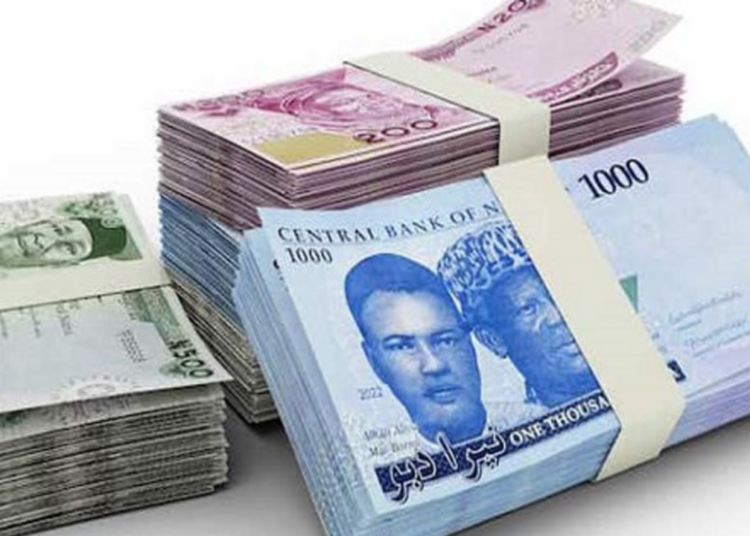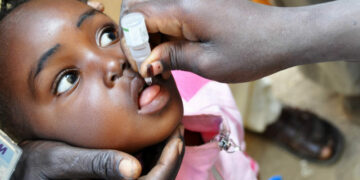In the middle of First World War, the German government embarked on a borrowing spree as well as printing money to back the war effort. It wasn’t until after the war that the effects of the borrowing started to take hold. Inflation started eating away at the value of the Deutsche Mark, slowly at first, with the value sliding from 2000 marks for every dollar, to 20,000 marks per dollar. And by 1923, when the inflation had gone out of control, the dollar exchanged for about 4.2 trillion marks.
At one point, the government was printing money from 130 printing companies and cartoons, apparently, depicted people with wheelbarrows full of money but could not buy a loaf of bread. Beyond the numbers, the real crisis was how Germans woke up one day, and everyone had lost confidence in the deutsche mark.
Today, the Nigerian Naira is facing challenges from multiple fronts. Over the last eight years, the government has turned to the Central Bank of Nigeria (CBN) to fund its budget deficit. The apex bank in turn, was said to have printed about N23 trillion during that period, disregarding the law limiting CBN advances to the federal government to five percent of the previous year’s revenue.
In part, the central bank made an attempt to correct the structural damage it had done to the economy when it redesigned the naira and started mopping up most of the money in circulation. But its actions probably, recorded more harm than good.
Worse is that, added to the scarcity of bank notes, it sparked a crisis of confidence in the Naira with a number of border communities in Nigeria opting to hold transactions in the currency of neighbouring countries. The effects may, however, be permanent as large sections of Nigeria’s trading communities more than ever, are finding the CFA franc as an acceptable means of transacting business.
Right under our noses, while we were all not paying attention, the unthinkable seemed to have happened. The CFA currency used by eight West African countries, namely; Burkina Faso, Ivory Coast, Mali, Niger, Senegal, Togo, Guinea Bissau and Benin, is now worth more than the Nigerian Naira. Shockingly, 1 CFA franc is now worth N1.28.
Even before the inauguration of Bola Ahmed Tinubu as president, Nigeria’s inflation was the highest it had been in over a decade. His decisions to remove the subsidy on Petroleum Motor Spirit (PMS) and also float the naira further compounded the problem. This is even as the government recently dismissed an assessment by the EIU that; “The CBN lacks experience in conducting monetary policy under a float, and the need to control rapidly increasing inflation will become more acute over time. Our forecast is finely balanced, but we expect a return to heavier exchange-rate management from the second half of 2023 as the naira slides beyond N800:US$1 from N770:US$1 in early July.”
The truth, in our opinion, is that this is not the best time for experimenting. The livelihoods of 220 million Nigerians are at stake. The good news, however, is that the president appears to understand the magnitude of the problem regarding the management of the naira and the CBN. There are reports that he resisted the option of simply printing more money to fund the fuel subsidy and has ordered a probe of the apex bank. It is our firm believe that it will take a lot more than these measures to survive the coming storm.
It is, indeed, very sad, in our view, that today, the N1,000, Nigeria’s highest denomination can’t buy more than a litre of petrol. It is barely enough to buy a loaf of bread. The government should consider redenominating the naira, which Muhammadu Sanusi attempted to introduce back in 2012. Gone are the days when bags of Ghana-must-go (Nigeria’s version on money in wheelbarrows) are dragged in the halls of the National Assembly. It is because there is now an alternative; the mighty U.S dollar. The government needs to address the dollarization of the economy, which has become so entrenched to the point that Nigerians no longer have confidence in having their savings in naira. This was further made worse by a recent directive by the NFIU, tasking civil servants on domiciliary accounts.
In the midst of all these, we urge the government to resist the temptation of undermining the apex bank’s autonomy. It is bad enough that the CBN has become a political player and allegedly, reportedly, funded election campaigns. Having the presidency make the decision on whether to float the naira or not, print money in excess to what is legal or even be the one to speak on behalf of the bank, will only erode confidence in its policies and the currency it churns out.





